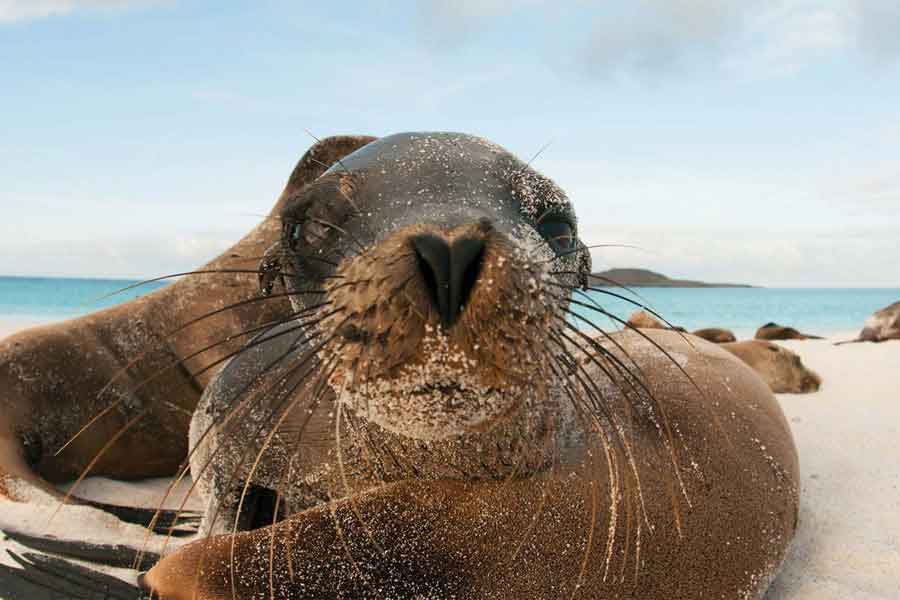
Sea lions are mammals that have adapted their lives to the sea, where they spend a great deal of their time. However, some fundamental aspects of their lives, such as mating and giving birth, are tied to the land. With this goal in mind, it is common to find them on the Patagonian coasts, forming sometimes very large concentrations.
But how do these animals, who divide their time between icy water and the dry desert, maintain their body temperature within acceptable limits? Where do they obtain the freshwater, essential for their survival? Patient scientists have managed to decipher these mysteries in recent studies.
The arterioles that carry blood to the skin constrict when the animal is exposed to the cold. Isolated by the significant layer of fat, the heat is maintained despite the icy waters. However, when the animal is exposed to the sun on the shore, it must lose heat through radiation. In this case, the arterioles dilate, and blood flows to the surface of the body, where it can cool down.
In the past, it was believed that pinnipeds obtained freshwater from the fish they hunted. Today it has been proven that they simply drink seawater. A special gland located in the tear ducts absorbs and expels the excess salt, which would otherwise dangerously elevate the level of dissolved salt in their blood. In this way, they have managed to adapt their terrestrial life to desert areas devoid of other mammalian predators precisely due to the lack of freshwater. Two ingenious solutions that allow them to sleep peacefully while basking in the sun on the beaches.
«You cannot defend what you do not love, and you cannot love what you do not know.»

